József Antall Jr., the first freely elected prime minister of Hungary after the fall of communism was born on 8 April 1931 in Pestújhely. His father, József Antall Sr. (1896–1974) was a lawyer, civil servant and a founding member of FKgP (Independent Smallholders’ Party). His maternal grandfather, father to Irén Szücs, István Szücs was also a civil servant in the Ministry of Religion and Education, deputy undersecretary for elementary schools before his retirement and MP between 1927 and 1935.
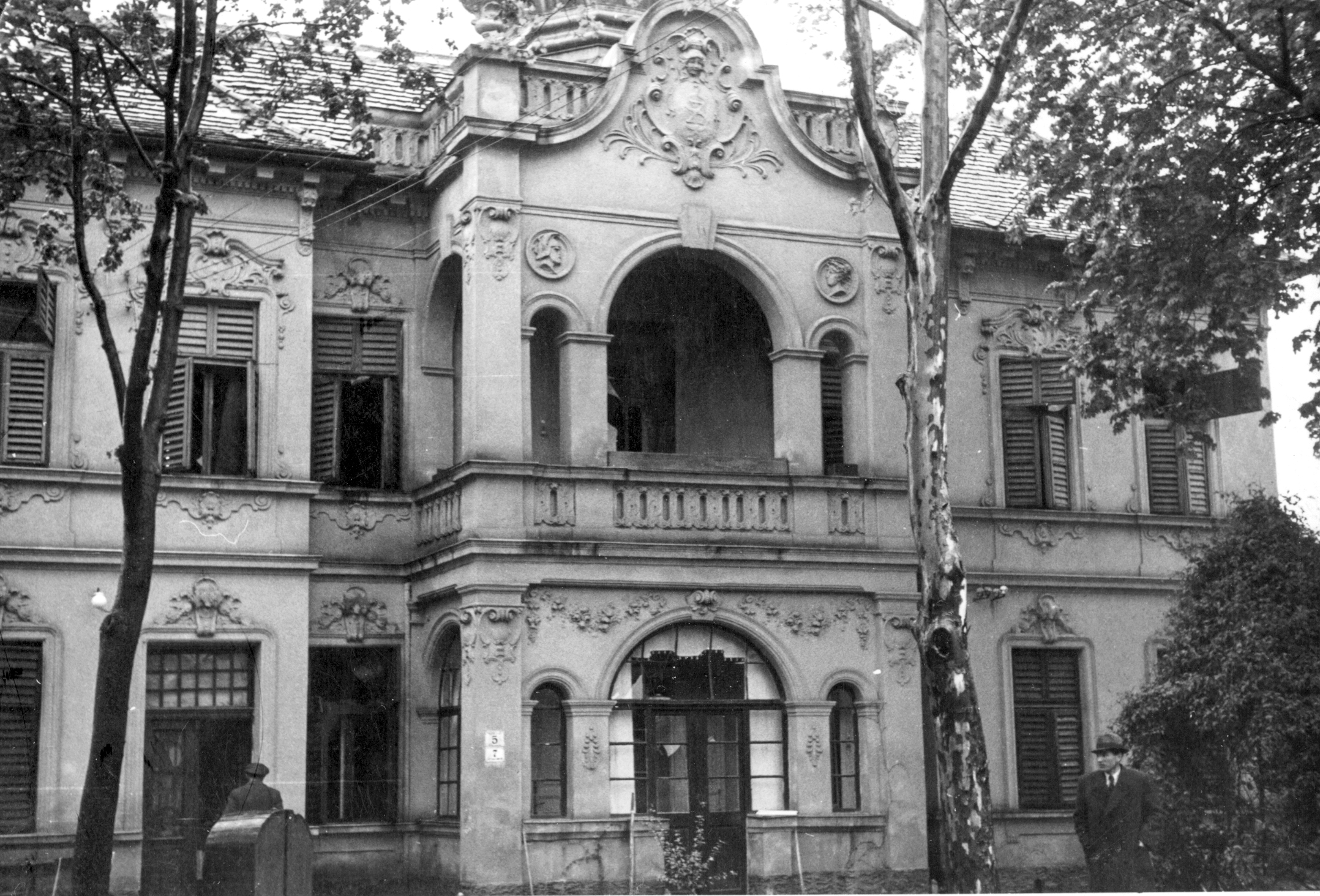 The birthplace in Pestújhely was built by Antall's maternal grandfather, István Szücs
The birthplace in Pestújhely was built by Antall's maternal grandfather, István Szücs
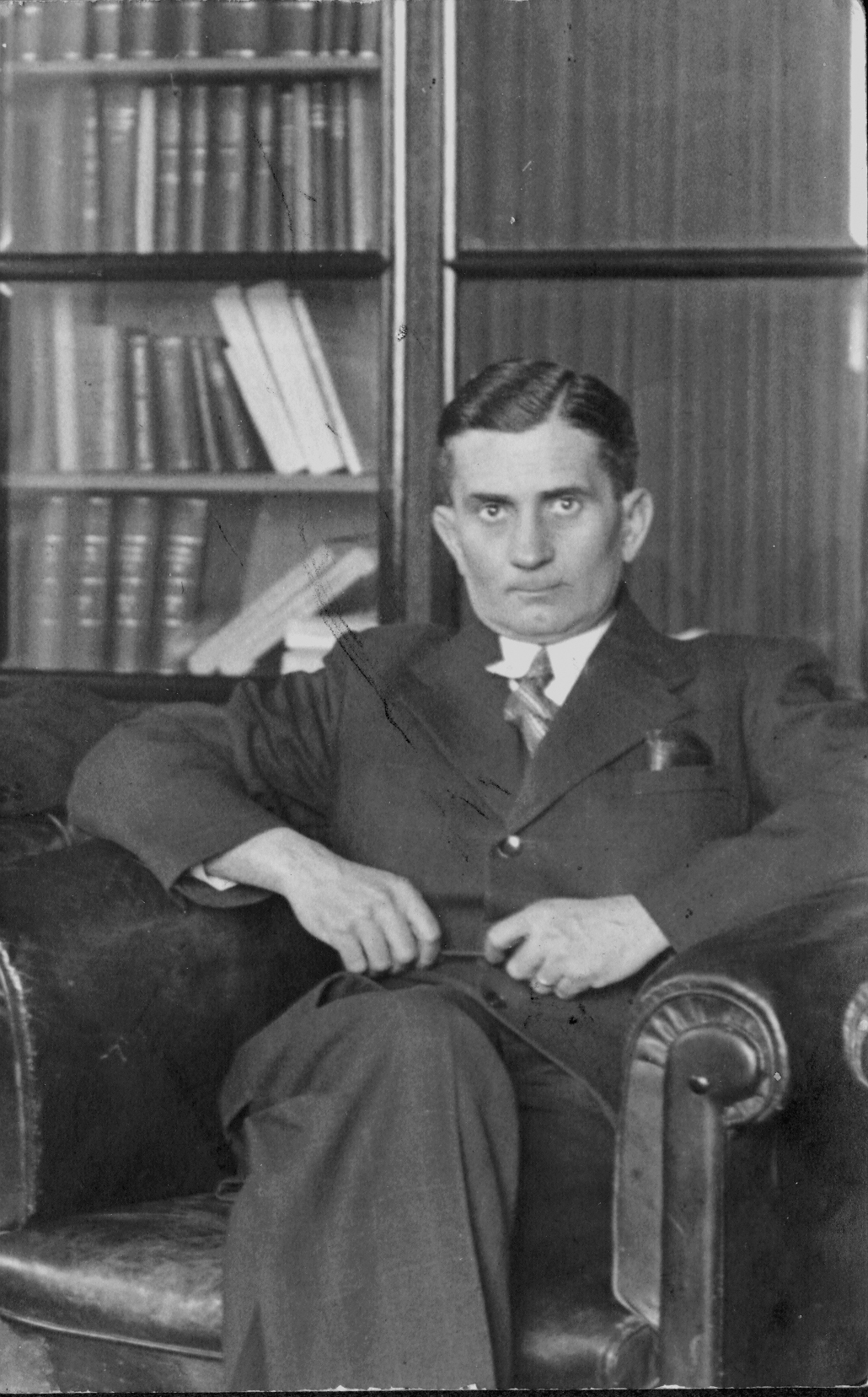 Father of József Antall, snr. József Antall
Father of József Antall, snr. József Antall
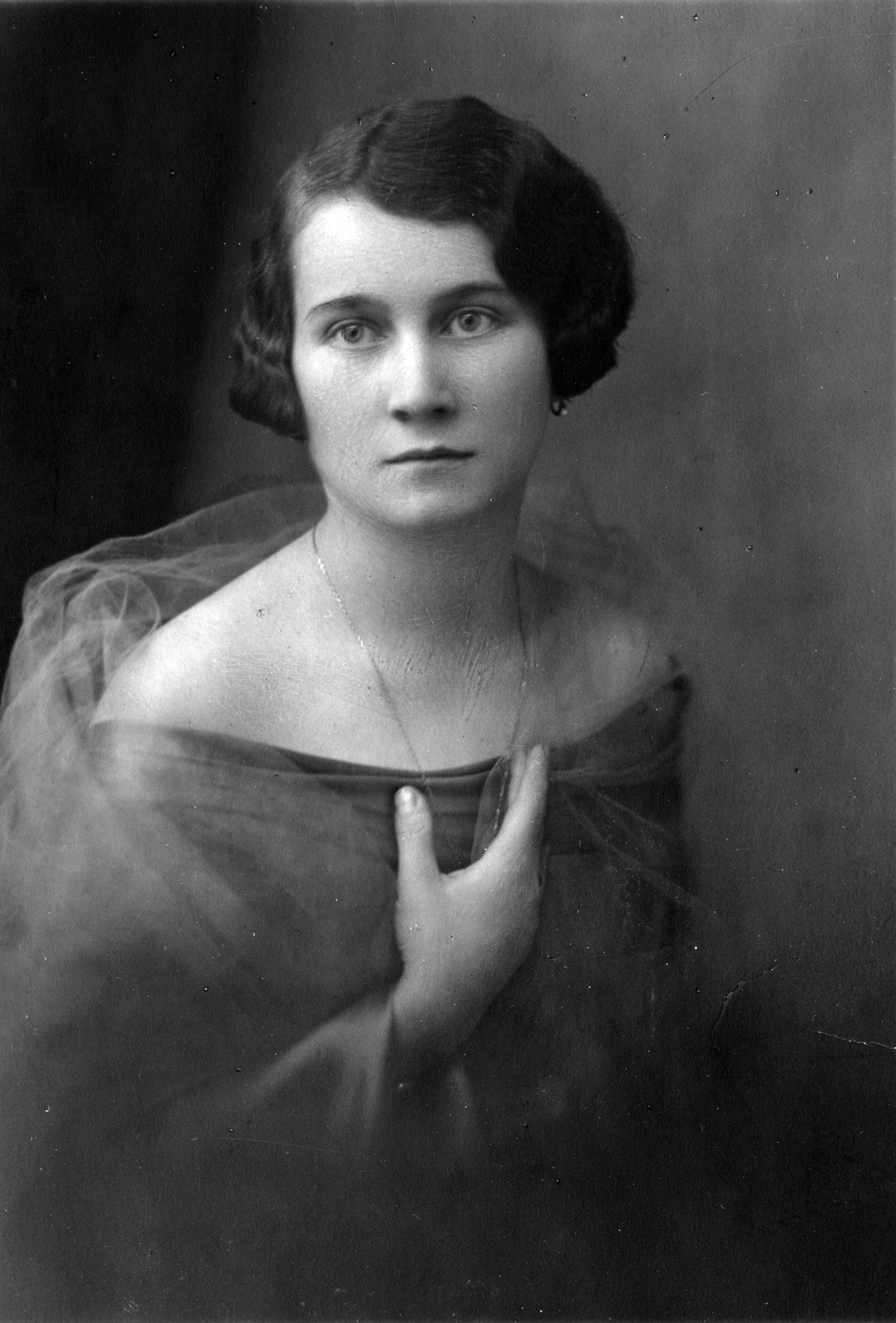 Mother of József Antall in the 30's
Mother of József Antall in the 30's
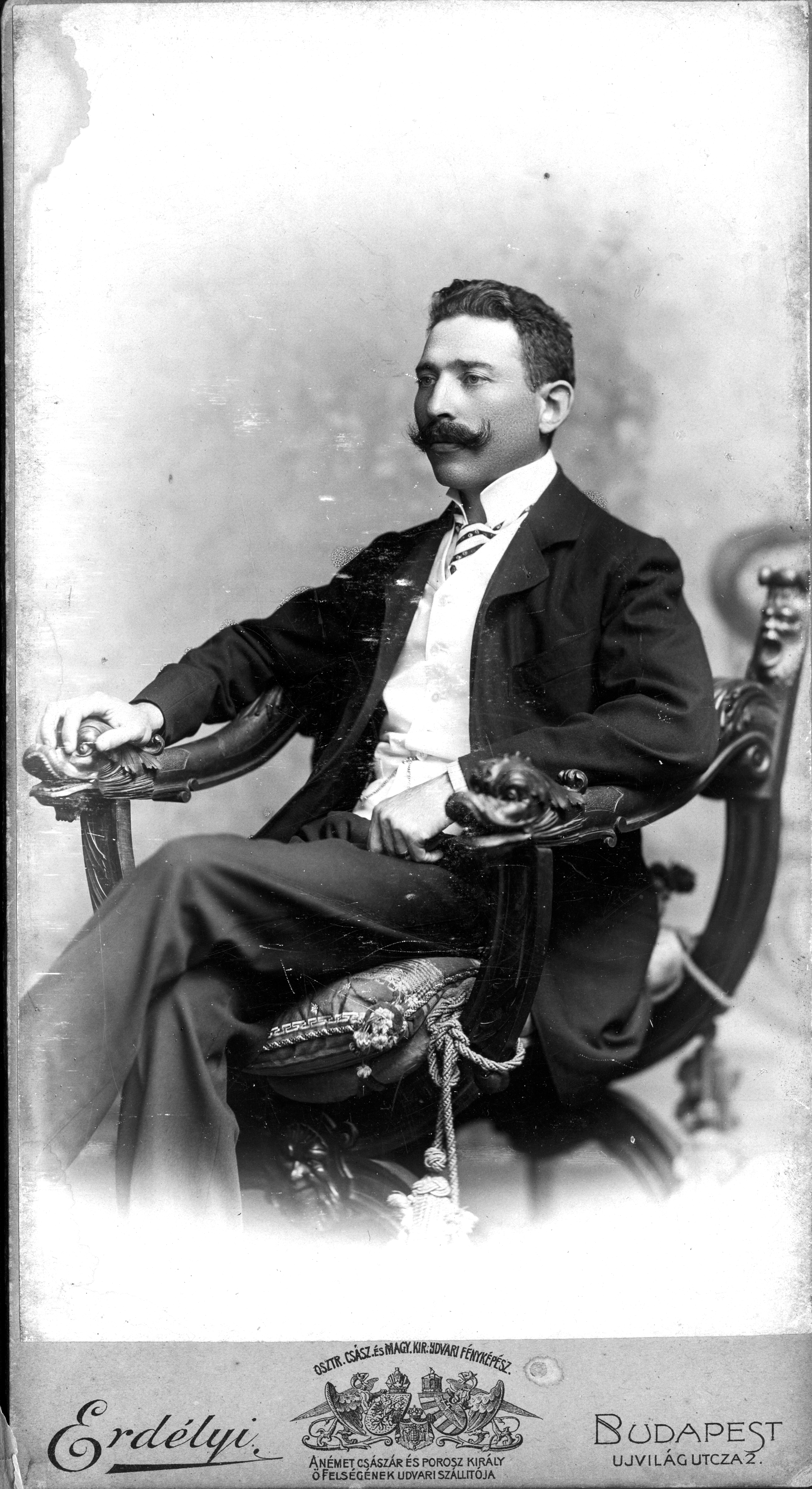 István Szücs around 1900
István Szücs around 1900
This heritage influenced his commitment to democracy, patriotism, Christian societal norms and morals. He attended the Piarists’ Secondary School in Budapest from 1942, graduating in 1950 - at which point he had already decided to enter politics. He studied at the Faculty of Humanities at ELTE, graduating with a degree in History, Hungarian Language and Literature and also as an Archivist, Librarian and Museologist. His graduate thesis focused on József Eötvös’ elementary school policies, his PhD thesis on József Eötvös’ politics and the preparation of the Compromise of 1867.
He married Klára Fülepp (1934-2022) in 1952 at the Piarist Chapel in Budapest. They had two children: György Antall, a lawyer and Péter Antall, a photojournalist.
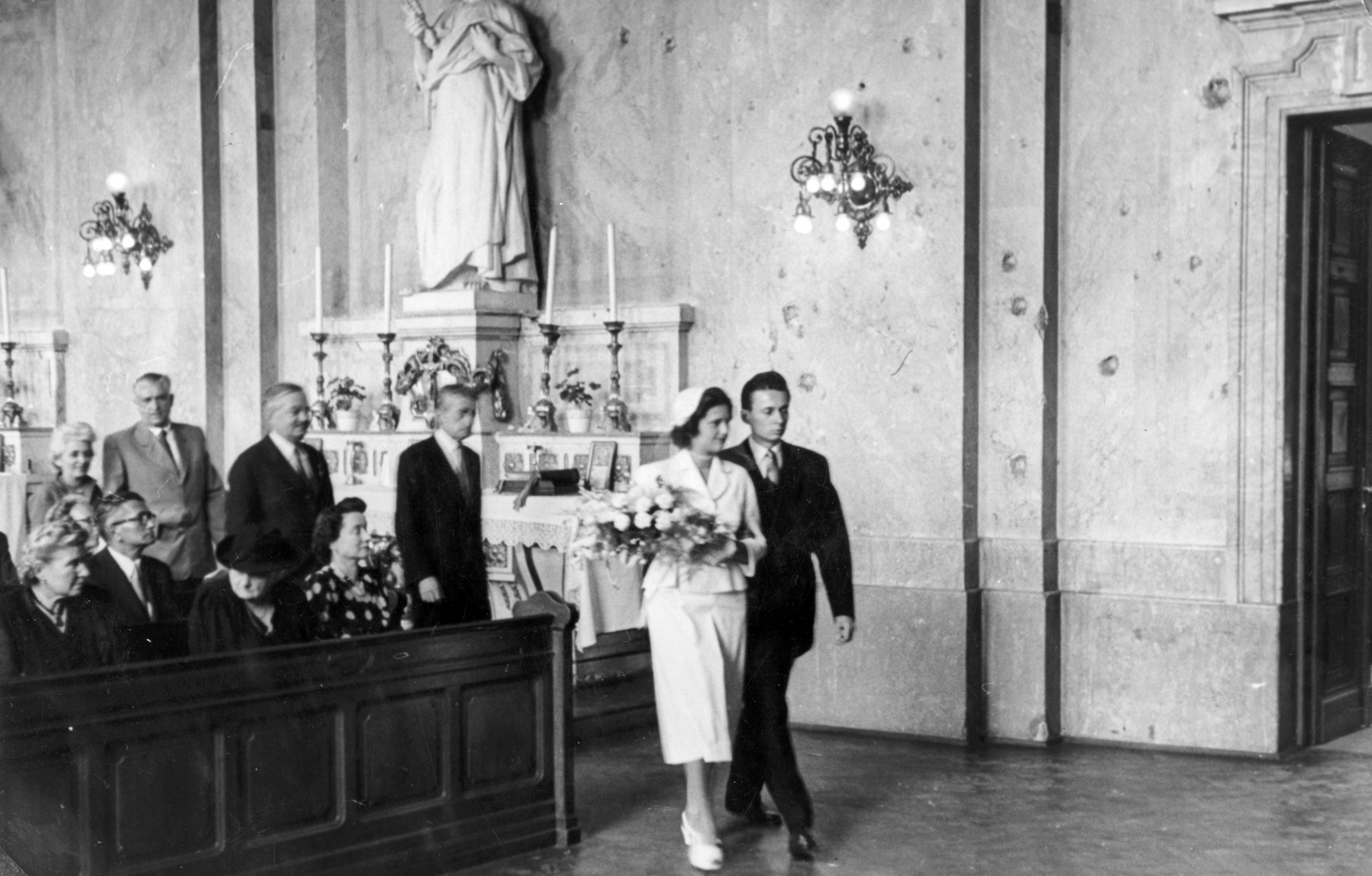 The wedding of József Antall and Klára Fülep
The wedding of József Antall and Klára Fülep
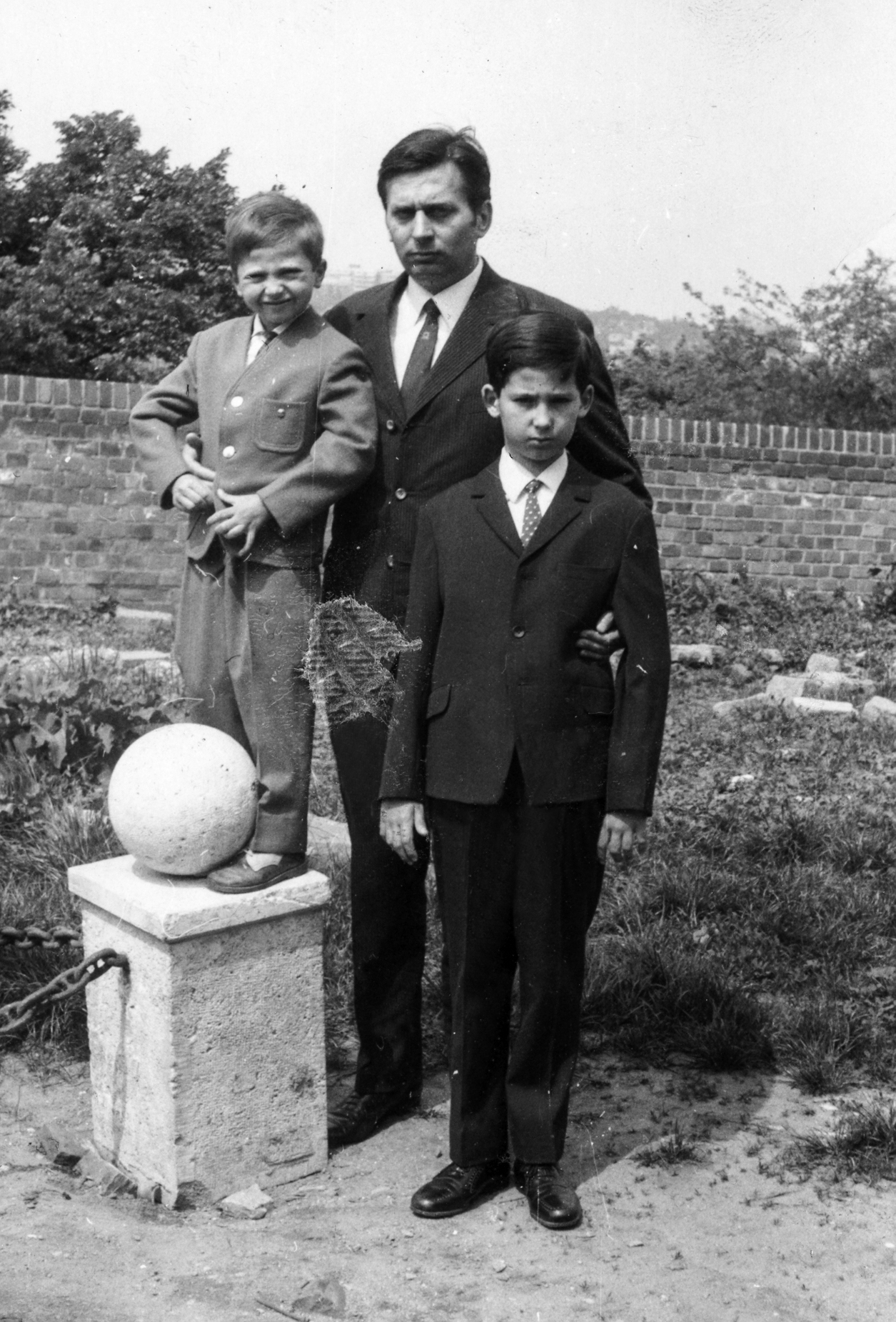 Young father with his sons
Young father with his sons
After graduation József Antall worked in the National Archives of Hungary and afterwards at the Institute of Pedagogy. He started to teach at Eötvös József Secondary School in 1955, becoming head of the revolutionary council there during the revolution of 1956. He also engaged in re-establishing the Independent Smallholders’ Party and founding the Christian Youth Alliance. After the crushing of the revolution he was repeatedly taken into custody by both Soviet and Hungarian authorities and questioned continuously even after being released. Despite this, he was allowed to teach – Hungarian in Eötvös József Secondary School from 1955 to 1957 and in Toldy Ferenc Secondary School from 1957 to 1959 (he was dismissed from Eötvös József Secondary School as a punishment for his political activities). He was subsequently deemed unfit for teaching after 1959 due to his political leanings.
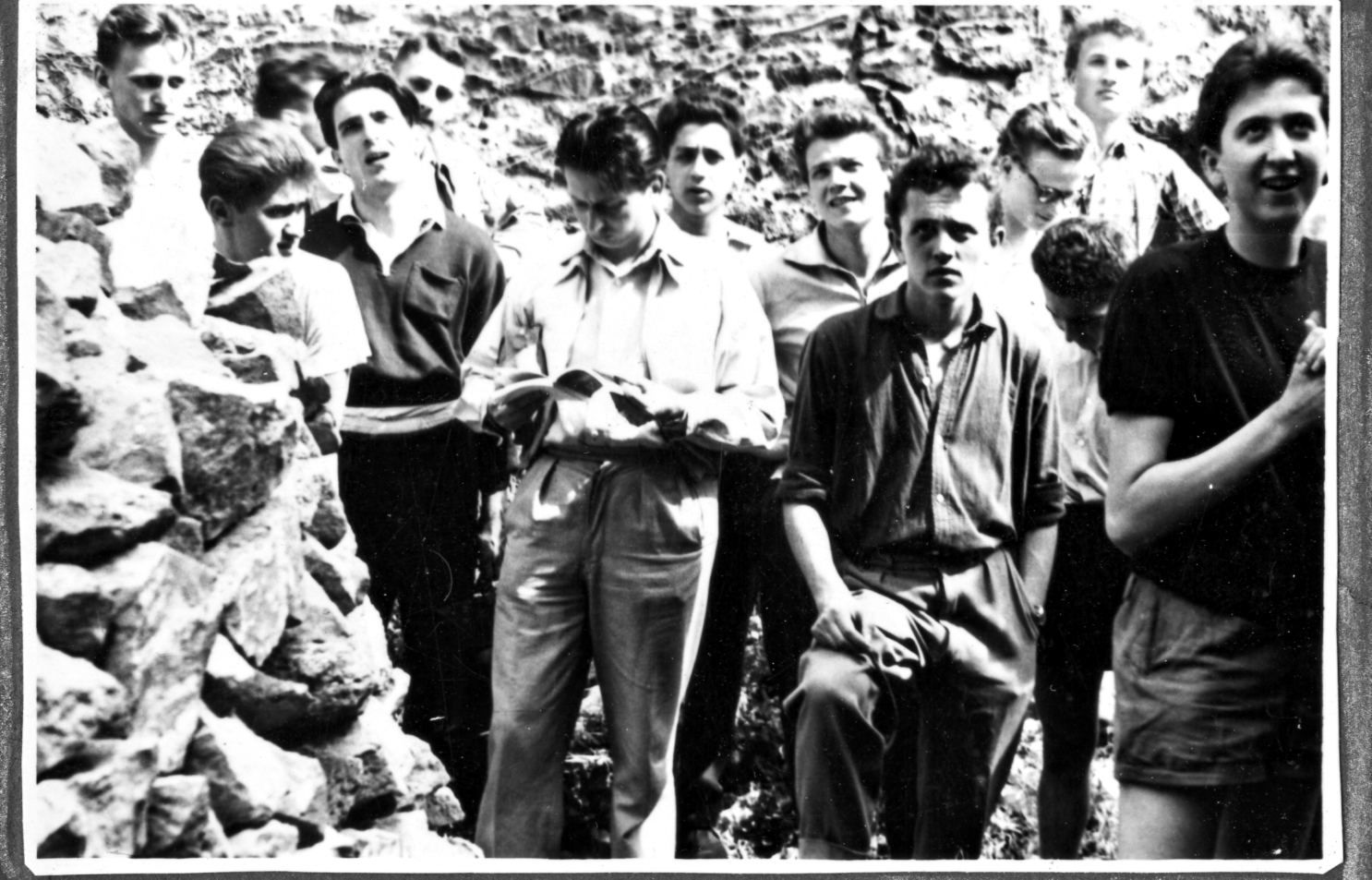 Hiking with students
Hiking with students
He worked as a librarian following that -in the Semmelweis Medical History Museum, Library and Archives (established in 1964) first as a researcher, then as vice director, deputy director from 1974 and finally director from 1985. He acted as editor, later editor-in-chief of the Medical History News Bulletin from 1968 to 1990. Due to his research he established relations on numerous occasions with foreign doctors and historians, becoming deputy director of the International Medical History Association in 1986.
He first got a passport to a Western country in 1974, going to Switzerland first and following that to the Federal Republic of Germany, lecturing at several universities (Düsseldorf, Marburg, Cologne, Bonn, Munich). Because of his role in the 1956 revolution and also because of his internationally renowned scholarly activities he was under secret police surveillance. Several III/III agents wrote reports on him.
He became engaged with the Hungarian Democratic Forum (MDF) on Sándor Csoóri’s invitation, taking part at the party’s events from the beginning of 1988. The so-called Opposition Roundtable was established on 22 March 1989 and MDF, which functioned as a proper party by the time, delegated Antall to the meetings – which meant the I/1 committee, paving the way for constitutional amendment. His numerous proposals, readiness to compromise and professional attitude made him well-known in increasingly larger circles of Hungarian society.
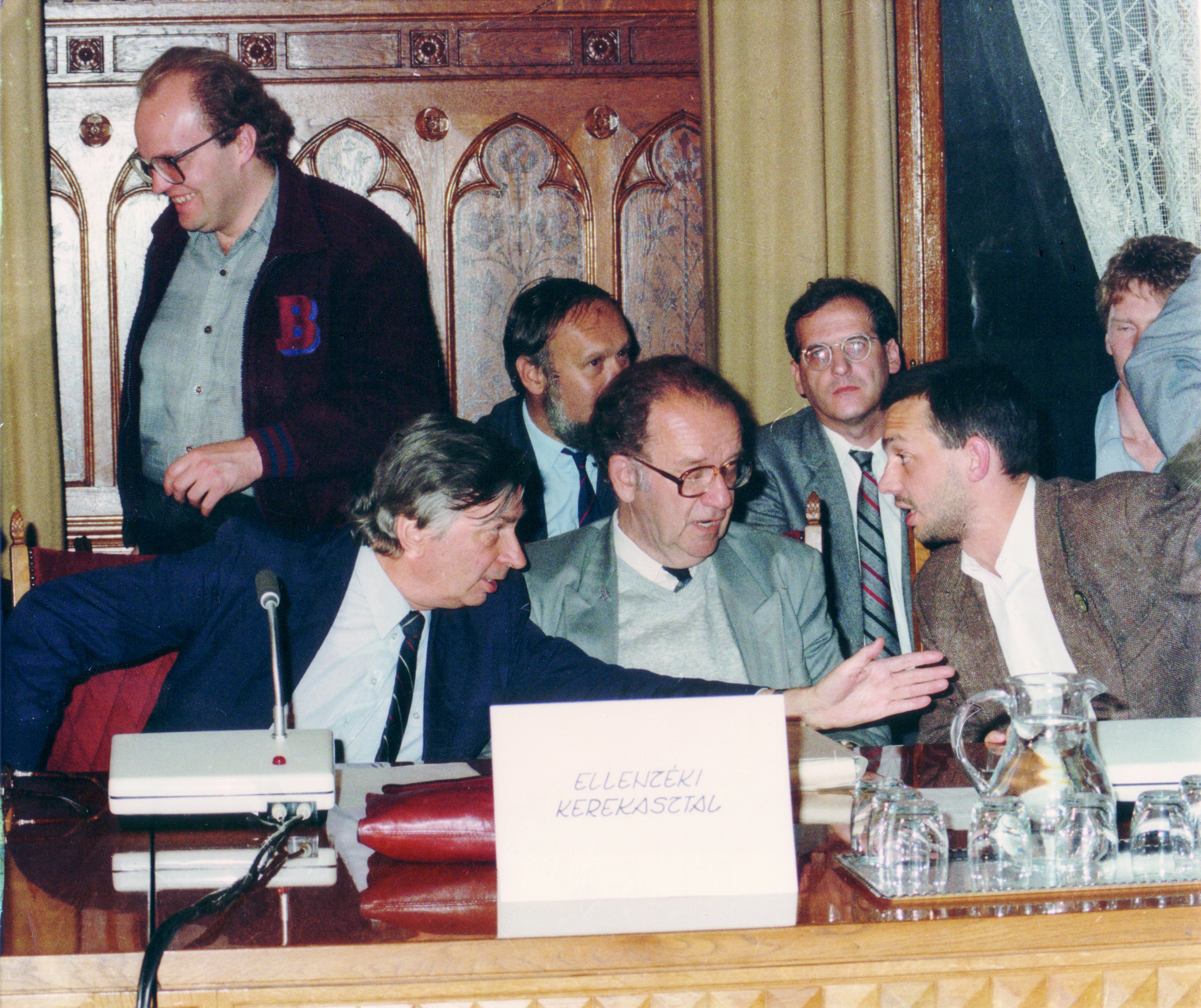 At the round table talks with György Szabad (MDF) and Viktor Orbán (Fidesz)
At the round table talks with György Szabad (MDF) and Viktor Orbán (Fidesz)
József Antall was elected president of MDF on 21 October 1989 by a sweeping majority, making it clear that he was to be the party’s candidate for prime minister as well. MDF won the 1990 elections, gaining 42,49 % of seats thus forming a government in coalition with the Christian Democratic People’s Party and the Independent Smallholders’ Party (FKgP). The same night the Hungarian Parliament elected him prime minister of the Hungarian Republic with 219 yes, 126 no votes and 8 abstention, voting also in favour of his government manifesto. Henceforth József Antall became the first prime minister since 1948 who had no ties to the former state party.
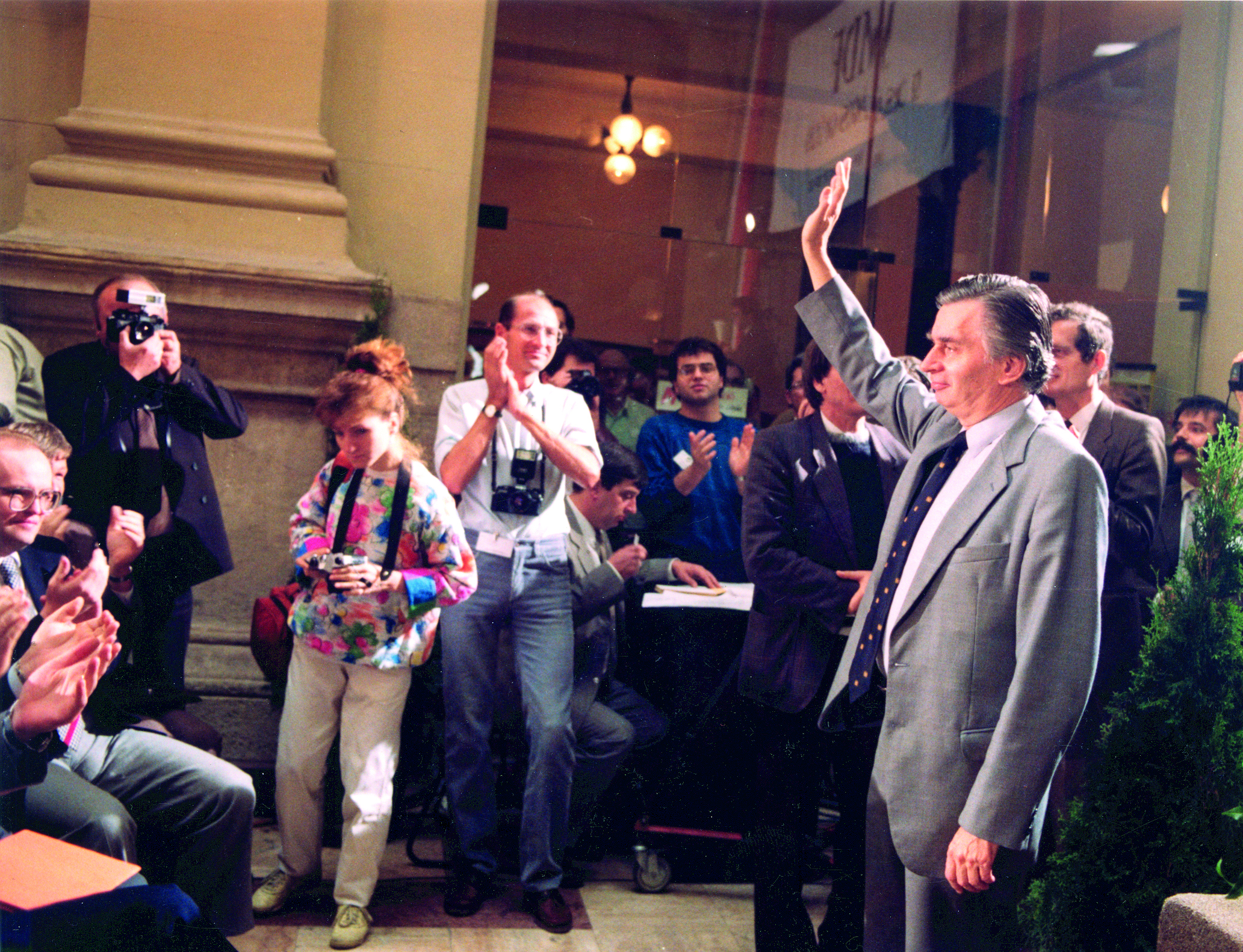 On October 21, 1989, József Antall became the president of the MDF
On October 21, 1989, József Antall became the president of the MDF
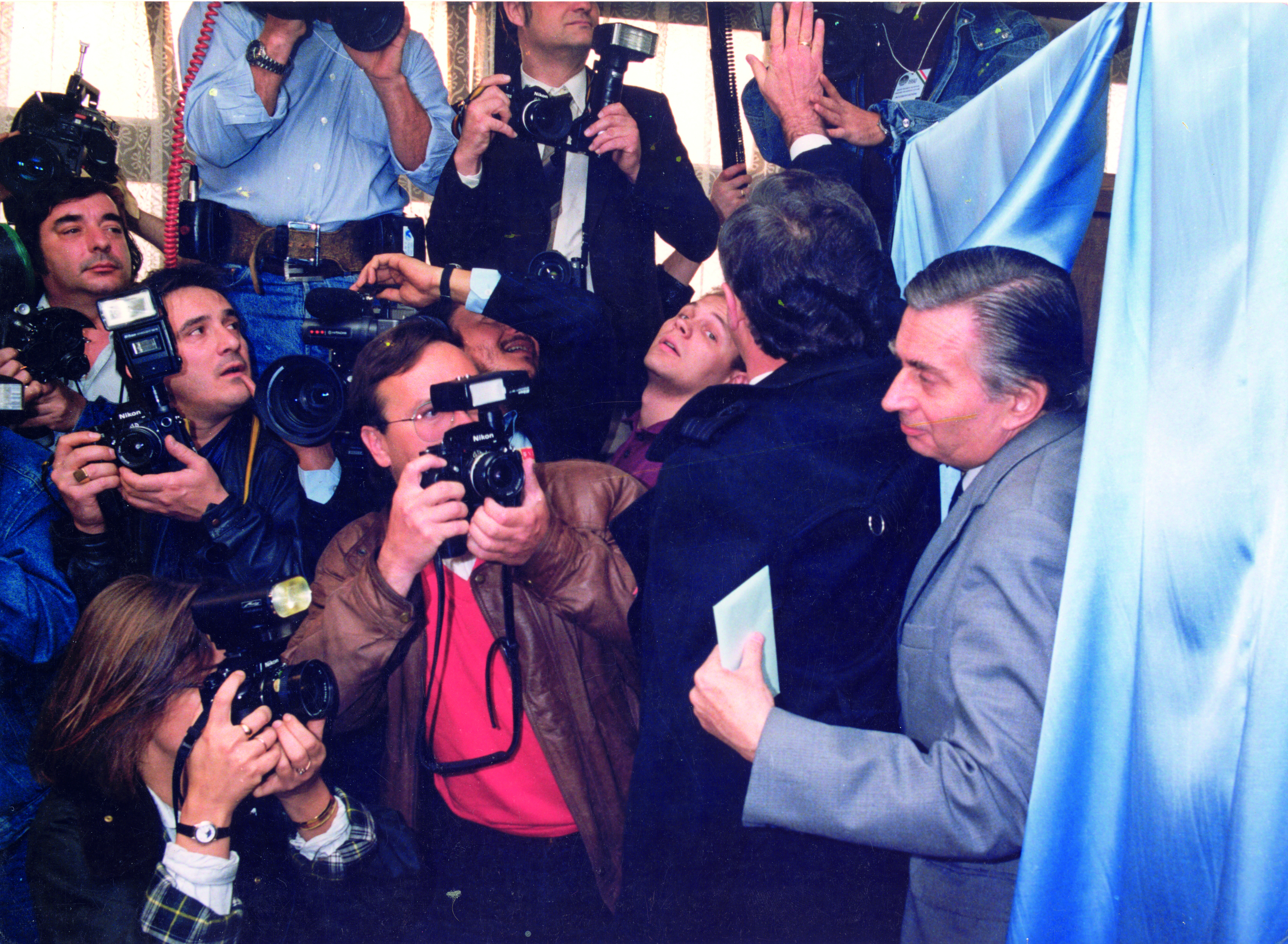 József Antall in the first round of the elections on March 25, 1990
József Antall in the first round of the elections on March 25, 1990
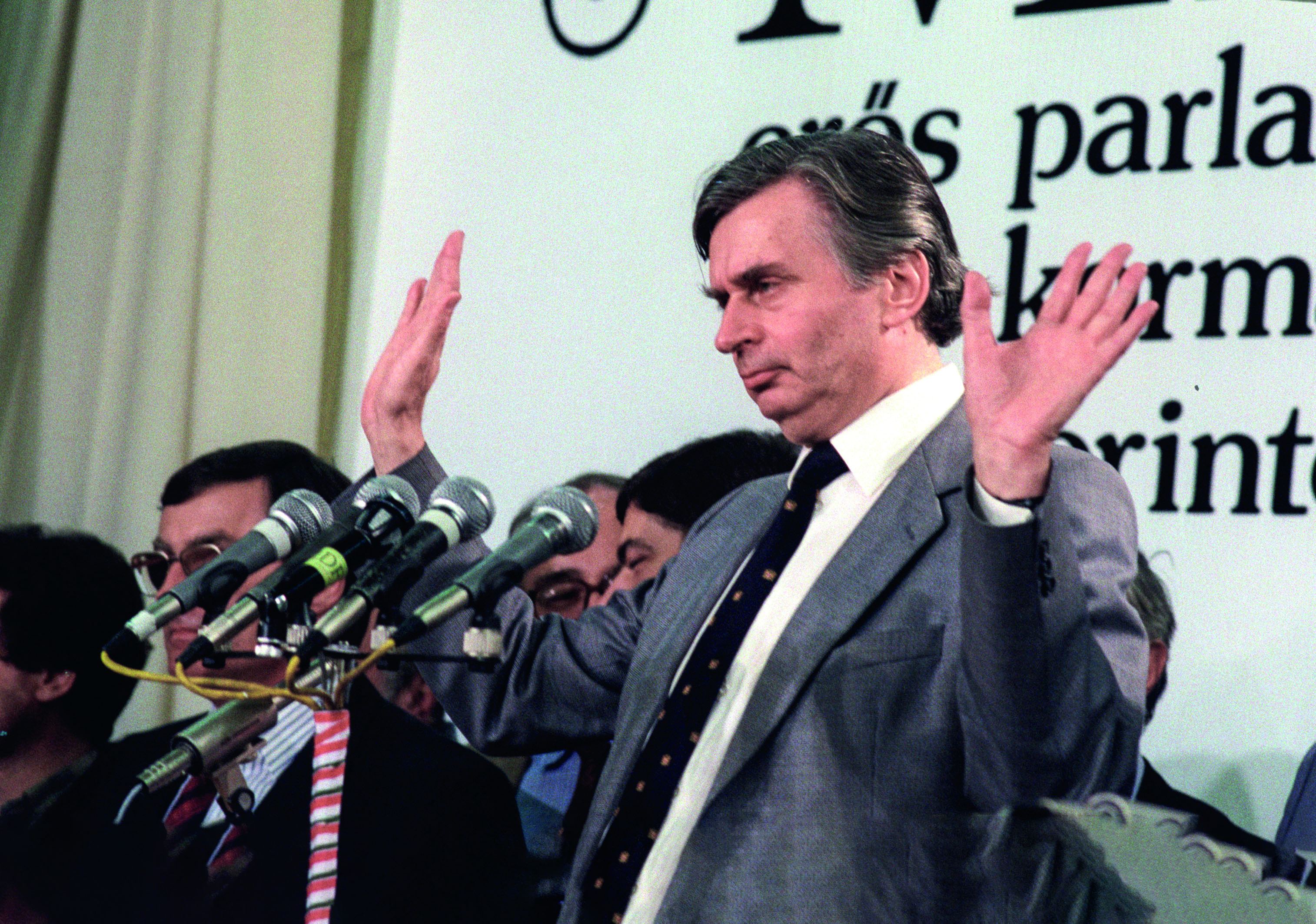 Press conference on April 8, 1990, after the election victory
Press conference on April 8, 1990, after the election victory
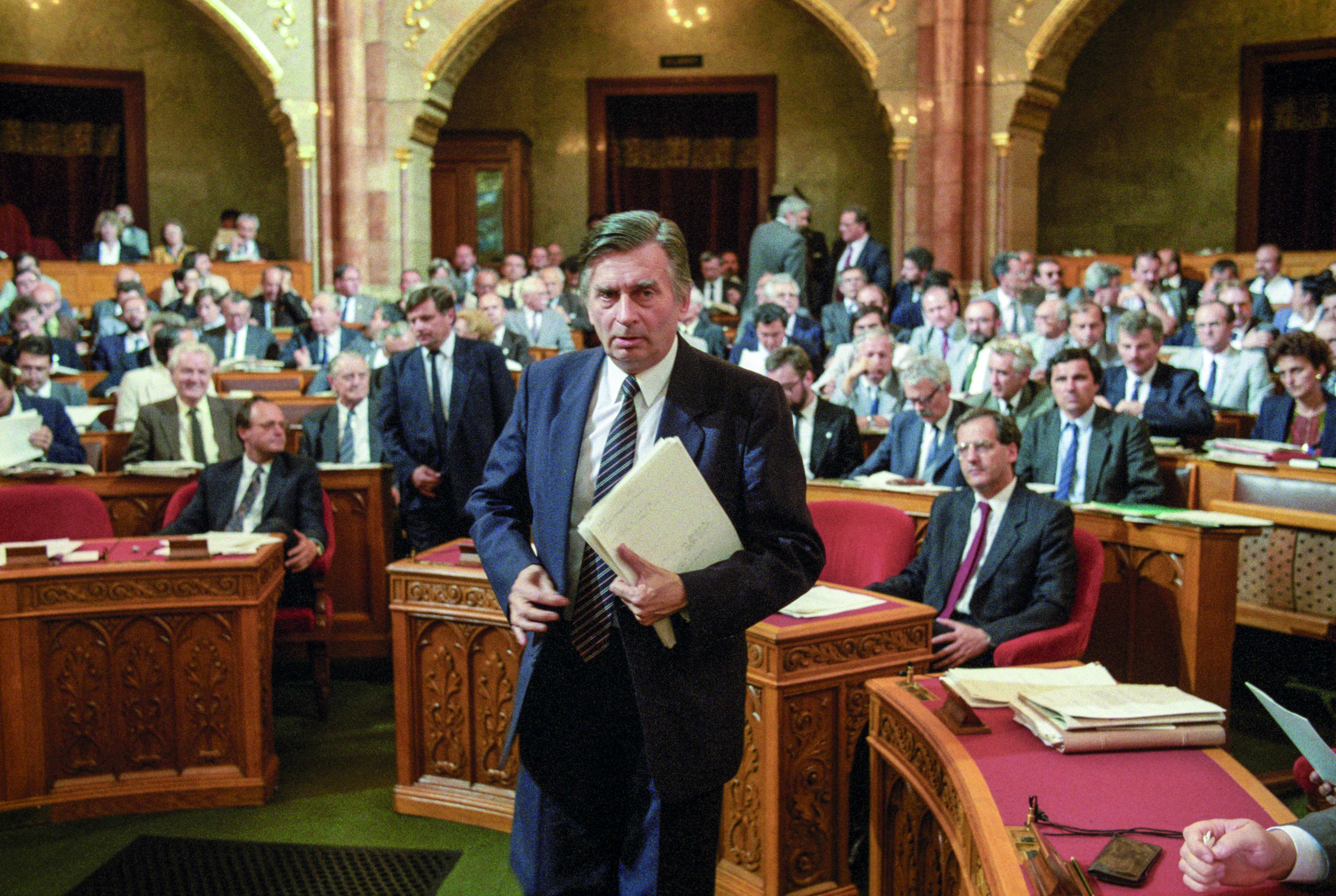 He takes the oath of office as prime minister on May 23, 1990
He takes the oath of office as prime minister on May 23, 1990
The prime minister signed the Visegrád Cooperation Agreement on 15 February 1991together with Václav Havel Czechoslovakian and Lech Wałęsa Polish presidents thus contributing enormously to the unravelling of the Warsaw Pact and, ultimately, to the withdrawal of Soviet troops in 1991. In 1991 he was awarded the Robert Schuman Prize in Strasbourg for his endeavours in reuniting Europe and expanding Hungary’s European connections.
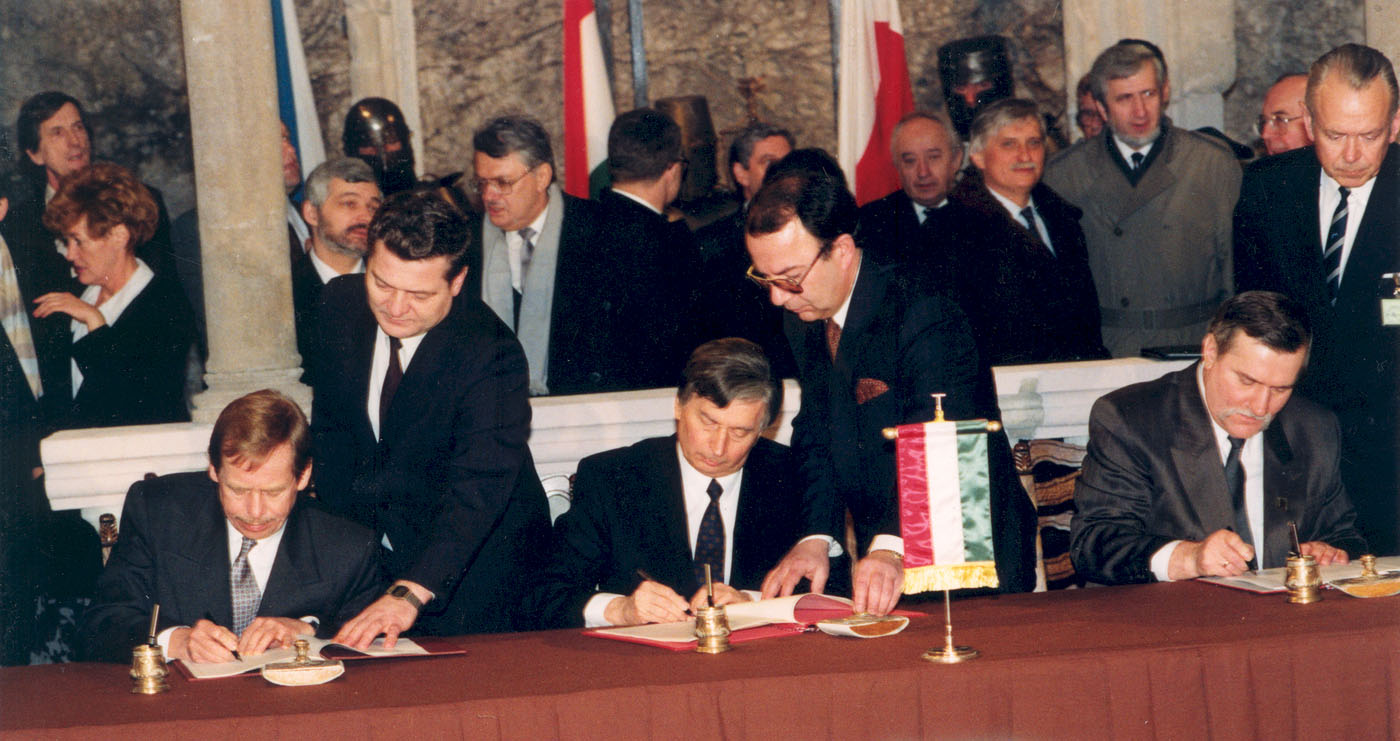 The Visegrad Agreement is signed on 15 February 1991 with the Czechoslovak President Václav Havel and the Polish President Lech Wałęsa
The Visegrad Agreement is signed on 15 February 1991 with the Czechoslovak President Václav Havel and the Polish President Lech Wałęsa
He had to face numerous difficulties in domestic politics – a government decree aimed at raising petrol prices resulted in the so-called ’taxidrivers’ blockade’ which made FKgP leave the coalition, forcing Antall to reshape his cabinet in February 1992, ultimately saving it from falling. A constant source of attacks from within MDF came from István Csurka, who later founded his own movement and subsequently his party, the Hungarian Party of Truth and Life (MIÉP).
At the beginning of his political carreer, in the summer of 1990, he was diagnosed with non-Hodgkin lymphoma. He was taken to hospital in October and succesfully operated on two days before the taxidrivers’ blockade. His ’pajama interview’ was broadcast form his hospital bed, reacting to the political crisis that came to be as a result of the blockade. Cancer returned half a year later and he succumbed to it on 12 December 1993, before completing his mandate as prime minister.
His burial service began at noon on 18 December 1993, Saturday. His coffin was taken from the Cupole Room in the Parliament to the wake set up in front of the building. György Szabad, Speaker of the House, András Sütő writer and Pál Bolberitz titulary abbott payed him tributes at the memorial service. From there the procession went to the National Cemetery on Fiumei Road, where, at his grave, Cardinal and Archbishop of Esztergom László Paskai, Loránt Hegedűs bishop of the Hungarian Reformed church, Béla Harmati Lutheranian bishop and József Schweitzer chief rabbi gave speeches.
